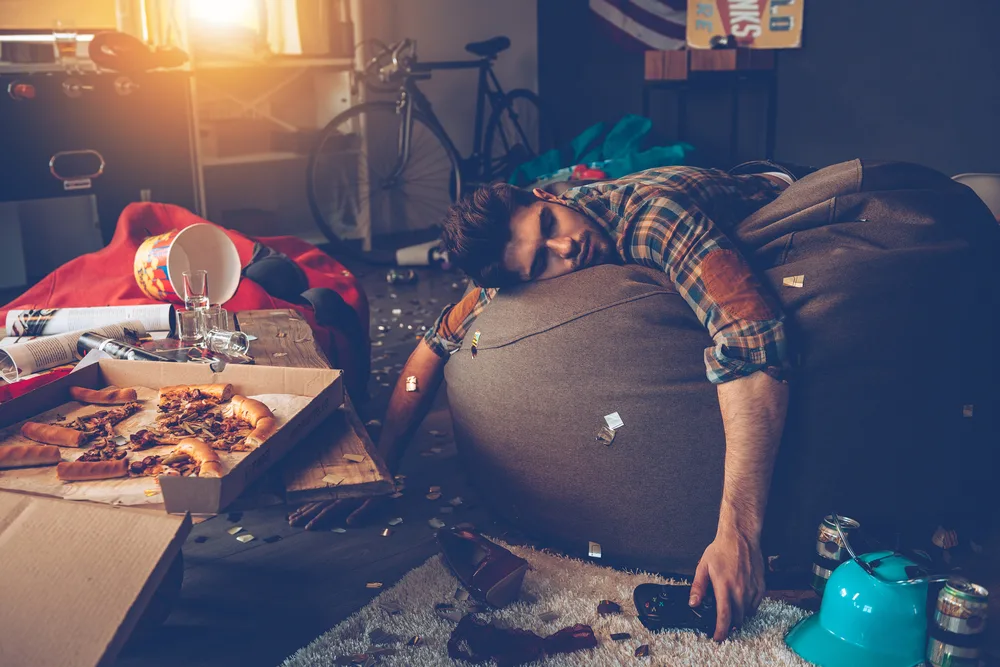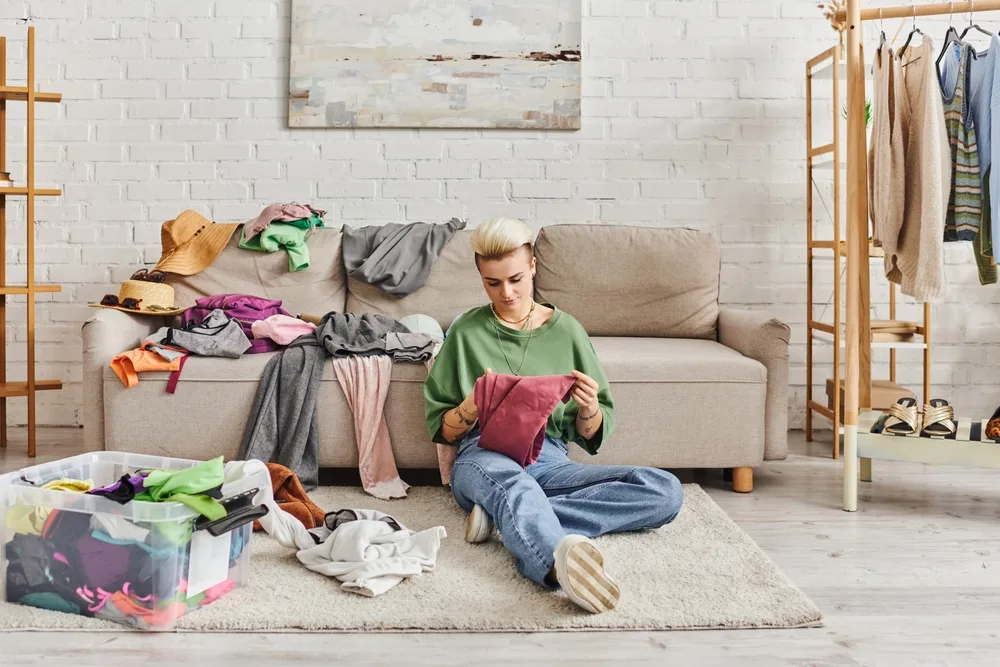


There’s nothing wrong with holding on to sentimental items or memories. If anything, these can offer a sense of comfort and familiarity. But in addiction recovery, sometimes that very comfort can become a barrier to progress. That’s why it’s necessary to release things that no longer serve you. Decluttering your life is not about erasing your history or discarding cherished memories. It's about creating space for what truly matters now – your present and future in recovery.
Clutter is a collection of disorganized, scattered, or unnecessary items that create disorder and chaos in a physical or mental space. It can manifest in various forms, including:
Clutter has been shown to cause stress, anxiety, and depression. There’s also a strong connection between clutter and sleep problems, constant low-grade fight or flight response, memory issues, weight gain, lack of focus, etc.

Clutter is bad for your mind and body and, therefore, bad for your recovery. Decluttering your home is a significant step towards creating a healthier, more positive environment. Here is how to remove clutter:
Physical clutter is the most obvious type of clutter and the first thing that comes to mind when discussing decluttering. Here’s how to get rid of physical clutter from your home, office or personal areas:
Take a thorough look at your space. Identify areas that contribute to stress or disorganization. Then, sort your possessions into categories. These can include essentials, sentimental items, and non-essential or triggering things.
Get four boxes, and label each one: one "Keep," one "Donate/Sell," one "Trash," and one "Undecided." Using these boxes makes it easy to break down the task. Once you’re done marking, pick a manageable area, like a single room or even a specific area within a room, then gather and pile all the items in the area on the floor, picking up each item and deciding which box to put it into.
Repeat this process until all items are in their respective boxes, and move on to the next area in your home. Be careful not to overdo it. In fact, you can set a time limit for the decluttering session, and only start work that you can finish within that time. This will make the process seem a lot less overwhelming.
Create designated spaces for essential items. This helps maintain order and prevents future clutter. If possible, invest in shelves, bins, or organizers to keep belongings in their designated places. The goal is to try as much as possible to keep only what truly adds value to your life.

If you have any unused substances dispose of them safely. You can return them to a pharmacy or to a drug take back program. But if the process is emotionally challenging, reach out to a sponsor, counselor, or support group for guidance. It’s equally important to get rid any paraphernalia as this can be a strong trigger for further drug abuse.
Digital clutter can be just as impactful as physical clutter, if not more so, given the increasing reliance on digital devices in our daily lives. Here’s how to declutter your digital space:
Emotional clutter pulls the mind in too many directions, leaving you feeling overwhelmed or tired. Here’s how to refresh, refocus, and get back on track toward your long-term recovery.
Engage in mindfulness techniques such as meditation, deep breathing, or yoga. Mindfulness helps you stay present and reduces the impact of overwhelming emotions.
Understand that recovery is a journey, and perfection is not the goal. Accept that setbacks may occur, and learn from them rather than dwelling on feelings of failure.
Consider activities that serve as emotional detox, such as art, music, journaling, sleep, or physical exercise. These activities can help release built-up emotions.
Share your feelings with a family member, trusted friend, or therapist. Opening up to others can provide valuable perspectives and emotional support.
Set and maintain healthy boundaries in your relationships. Communicate your needs and prioritize self-care to prevent emotional clutter from external sources.
Regularly check in with your emotions. Take time to reflect on how you're feeling and why. This self-awareness can prevent emotions from building up and becoming overwhelming.
Engage in therapy or counseling to address deep-seated emotional clutter. A mental health care professional can provide guidance and support in navigating complex emotional issues. They can also help you learn how to set goals, forgive, and challenge negative self-talk.

Decluttering your life can significantly benefit life in recovery for several reasons:
Removing physical clutter and emotional baggage allows you to create a supportive environment that aligns with your commitment to positive change. But if you’re having a hard time, it might be a good idea to get some help.
If clutter is triggering you to go back to using, don’t hesitate to seek mental health services or substance abuse treatment. Mental health and addiction treatment can help you regain control of your life. Contact us today to find out more:


